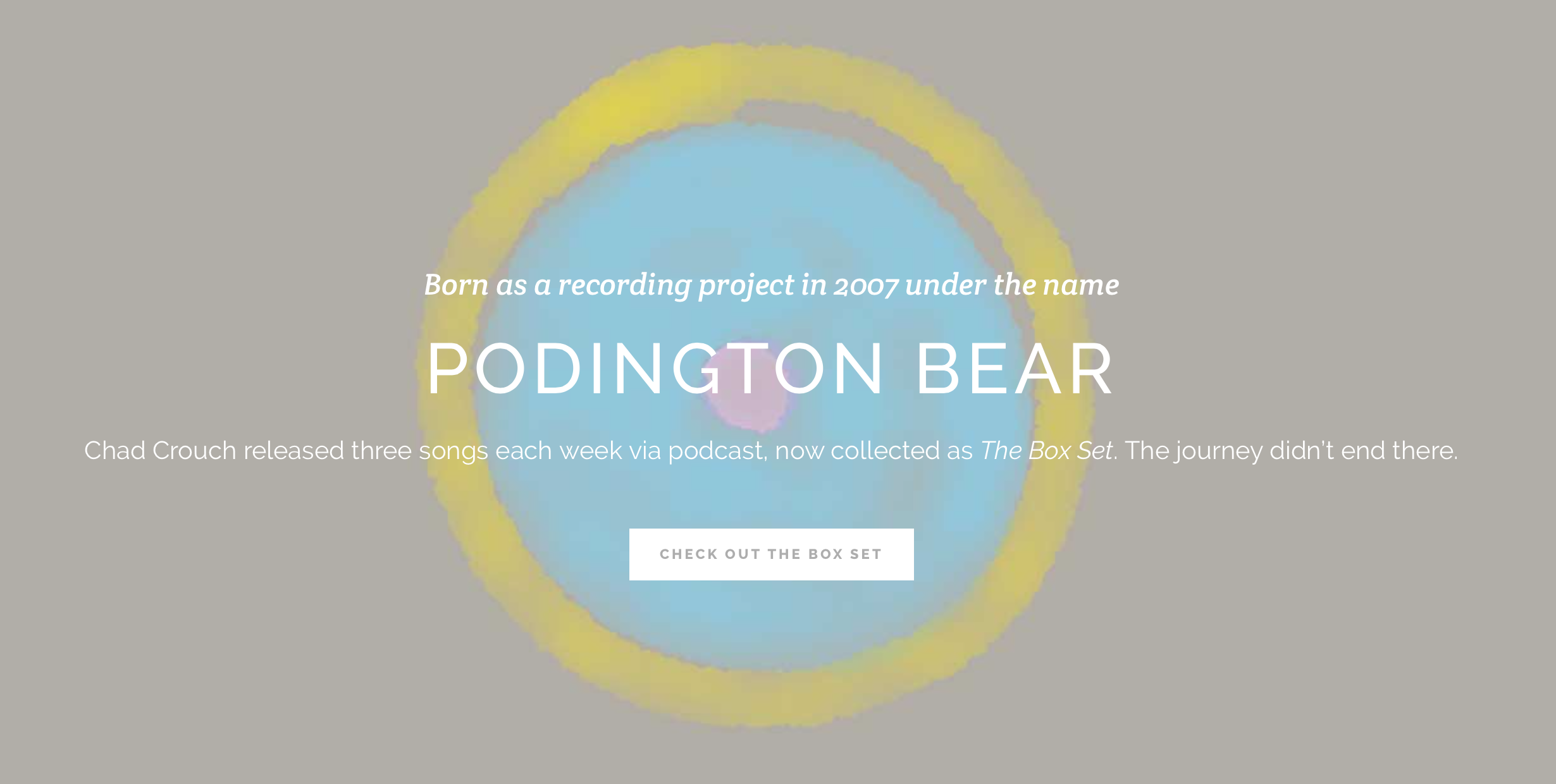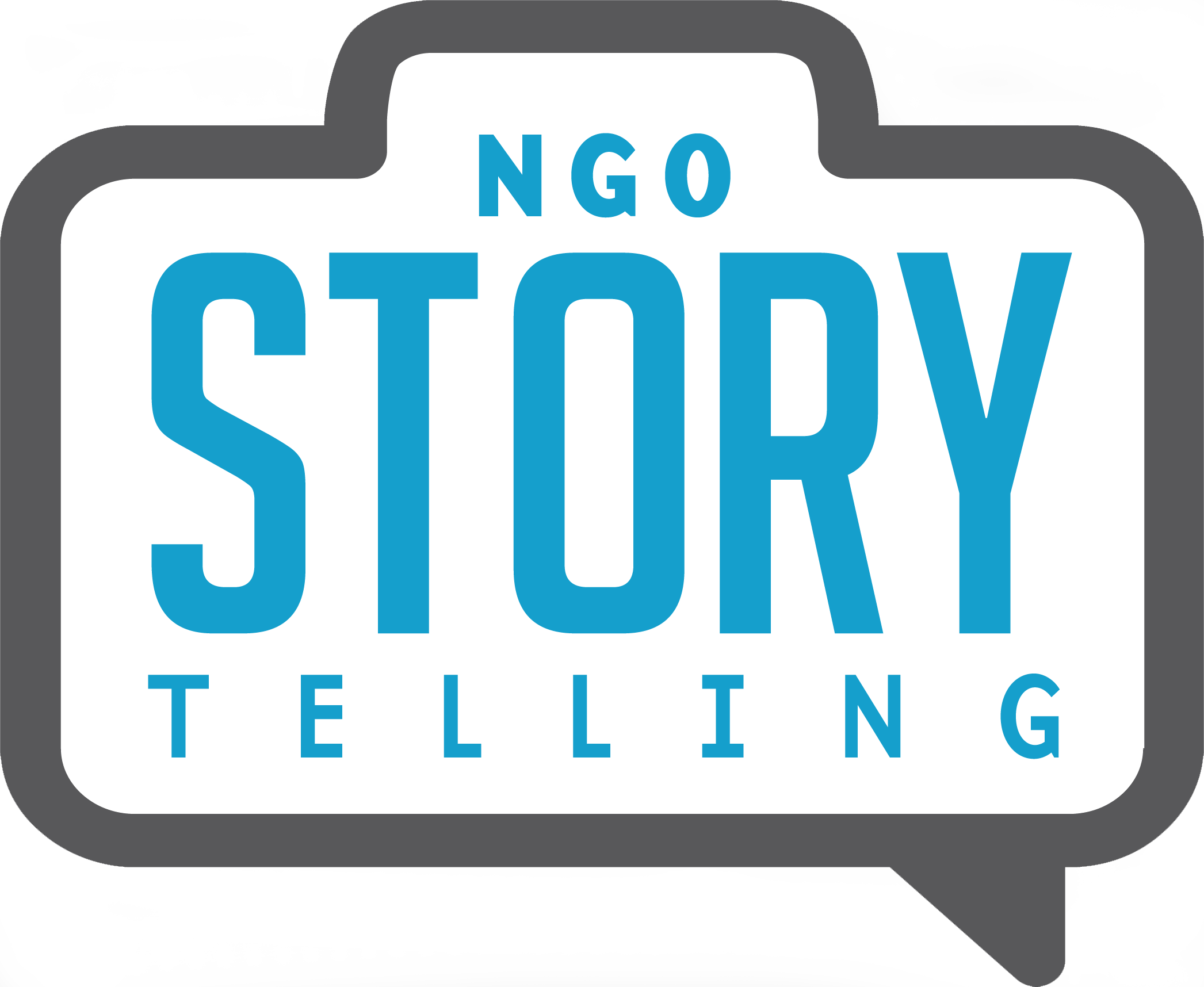Musician Chad Crouch -- aka Podington Bear -- on Composing and Licensing Music
I first learned of the musician Chad Crouch -- also known as Podington Bear -- several years ago when I heard one of his instrumental songs on a "This American Life" episode. The music was beautiful, emotional and evocative -- perfect for some of the nonprofit videos I edit, I thought. But I also thought there was no way I or the organization I worked at would be able to afford to license his work. I mean, the guy's music was on "This American Life." As it turns out, Chad licenses much of his work (found in his Sound of Picture music library) under a Creative Commons license and offers affordable licensing fees for nonprofits and for commercial use. Chad lives in Portland, Ore., where he works on music projects and runs HUSH Records. When you first released your music, you used the name Podington Bear and you gave it all away under a Creative Commons license. Why did you choose to do it this way?
Some context for that is I was running a label and at the time and there was a lot of upheaval about people pirating music and people sharing music. Is it a good or bad idea to give music away? And so for me to do some research and development on my own with my own repertoire outside of the label was an appealing idea because I could answer some of these questions that people were having.
It was 2007 that I embarked on this podcast. So, the means by which I shared my music was through a podcast and basically my goal was to just write and record a song and share it every Monday, Wednesday and Friday. In addition to allowing people to download it to their devices for their own enjoyment, I adopted Creative Commons Non-Commercial licensing for it.
So at the beginning you were releasing everything under a Creative Commons license, but now you have lots of different licensing fees and options. What made you decide on these?
I would get these emails coming in, and I would reply, and then they would reply, and I would reply, and they would reply, and then we'd come to an agreement about what's the fair amount of money to charge for their commercial use of the music. So it was very time-consuming. The answer to that was just to create a website with my rudimentary skills to try and speed up this discourse.
I try to make options available to people who are working on a very limited budget while not necessarily allowing super cheap use for people who can afford a lot more and in fact have big budgets for their productions.
And still, the Creative Commons Non-Commercial license applies to anything that you hear and see in that Sound of Picture library. It's pretty much identically mirrored on a very popular website, freemusicarchive.com. I post most all of my music to that site and that's where a lot of people find me.
If you're trying to pull someone's heartstrings and you use kind of cliché music with a lot of gravitas, sometimes it kind of – at least in my case – I can feel a little bit manipulated if I'm understanding that the music is quintessentially designed almost by a focus group to appeal with the really noble chord progression and then a soaring string arrangement or big hand claps. I like a little more nuance.
And where did the name “Podington Bear” come from? I chose this name "Podington Bear" because it had the word "pod" in it. The project had its origins in podcasting. And the iPod – which, you don't hear people referencing iPod anymore – but at the time, the iPod was at its apex of popularity. And as an alter ego I wanted to be someone who was approachable and cuddly and non-threatening, and so the bear was good for that. And Paddington Bear, of course, seems to embody that. So for better or worse, I'm stuck with that name.
I remember when I finally found out your real name, I was like, "Oh, so Podington Bear is just one person? He sure is prolific."
I may be kind of prolific but there's certainly people who are more prolific than I am. But yes, thank you. I don't like spending too much time trying to craft masterpieces. For me, I get bored with incessant refining. And while that could produce a lot of clunkers, I do try and have a basis for which I release compositions and recordings into the world that weeds out the clunkers. But every now and then I look back and I think, "Oh, I don't like that one anymore."
Is there one song specifically where you think, “I wish people would stop using that one.” Nothing jumps out at me in particular. The ones that that I hear, that get used more, tend to be things that I actually like as well. That's a good thing.
 Screenshot from the Podington Bear website.
Screenshot from the Podington Bear website.
What advice do you have for people who are trying to decide what kind of music to accompany their video? What should they be thinking about?
They should just try a bunch of stuff and see what seems to resonate with the story that they're trying to tell. It's not always obvious. Just have the music playing in the background and start clicking on play on different pieces of music and see if you're getting in the right direction.
I would say go against type. If you're trying to pull someone's heartstrings and you use kind of cliché music with a lot of gravitas, sometimes it kind of – at least in my case – I can feel a little bit manipulated if I'm understanding that the music is quintessentially designed almost by a focus group to appeal with the really noble chord progression and then a soaring string arrangement or big hand claps. I like a little more nuance.
I know your background isn't actually in music composition but it's in running this record label, HUSH Records. Why did you want to jump to creating your own songs?
Ever since I was in college, I really got into recording. So college, for me, happened in the mid-90s, and at that time it was on four-track recording devices with cassettes. And so I started with just voice and guitar and that's my basis. In about the year 1999-2000, I started a band called Blanket Music and we performed live and put out about three albums. Then I also did a couple of self-recorded albums, and so that furthered my interest in music composition.
I listen to podcasts every morning basically when going for a walk, and so I’m flattered if a producer chooses my music to underscore the podcast that I like to listen to.
When I'm listening to a podcast or I'm out somewhere and I hear instrumental music, I can often guess if it's by you because you have a sound. I do have a sound and a lot of it comes from being limited, being limited both by choice and by training. I'm untrained, and so as a performer, there are limits to which I can perform, and so my compositions tend to be pretty simple. But I also have an ear for the sounds that I really like and I'll stick to those sounds and use them.
You said you're untrained. What do you mean by that?
So, the extent to which I was trained to play a keyboard was like a few months in fifth grade. It's difficult for me to play with two hands anything that's complicated. I get around that by just playing with my right hand once and then playing with my right hand again to basically emulate the way a pianist or a keyboard player would perform with two hands more complex compositions. There are a number of tricks that you can use with a computer at your service to fix mistakes that you make with a performance, to just change the key or change the octave at which the performance has been rendered. It's a lot of fun. Of course, some people think it's a little bit like cheating, but everybody does it.
When did you realize that Podington Bear and the Sound of Picture library was going to become this pretty steady income stream?
It took a while. It wasn't until a few years ago that I even revamped Sound of Picture into a e-commerce website where I had a bunch of songs and then there were license options. It was more or less similar to what it is today except there wasn't any search functionality. It was just basically all my songs on one page.
I wonder where are some of your favorite places you've heard your music. Or, were you ever some place and you suddenly heard one of your songs and you were like, “Ah, that's mine!”
Yeah, it always gives me a little thrill, I have to be honest with you. And I hear it quite a bit because I'm a big podcast listener. I listen to podcasts every morning basically when going for a walk, and so I’m flattered if a producer chooses my music to underscore the podcast that I like to listen to.
 Screenshot from the Sound of Picture website.
A lot of your songs have these interesting names like “Rabbiting” and “Not the Droid.” How do you come up with these names?
Screenshot from the Sound of Picture website.
A lot of your songs have these interesting names like “Rabbiting” and “Not the Droid.” How do you come up with these names?
For “Not the Droid,” I think there was probably some element of the voicing in the composition that reminded me of a robot, and so rather than saying “Robot Song,” I thought “Not the Droid” was more interesting. It's really arbitrary coming up with names for things, but now it's come to the point where I actually have to Google so I can see if I'm duplicating a name I've already given something. Because occasionally that will happen where I'm like thinking of a name, thinking of a name, ok this name! And then I'll be like, but that's not all that uncommon -- I better check that I haven't named anything else that, because I have named two songs the same thing.
Which one?
I think it's called Lazy River.
What are you working on now?
Oh, a bunch of stuff. I’m working on solo piano type of compositions but with like unusual kind of piano sounds. I'm working on a very interesting batch of music that has more hip hop rhythms but it's not overtly electronic, sounds more typical band-like and I'm wondering if that collection might be something that I would actually my voice to, so it's something that has not seen the light of day. And if I did apply my voice, it probably would sound like a combination of Suzanne Vega's "Tom's Diner," where she's kind of monotone rapping, and like this band called Hot Chip, where it's kind of some soulful singing. So, we'll see. I don't know if it will work, but it's on my list of things to do. If my voice gets included it would not be Sound of Picture, it would not be called Podington Bear, it would be something else.

